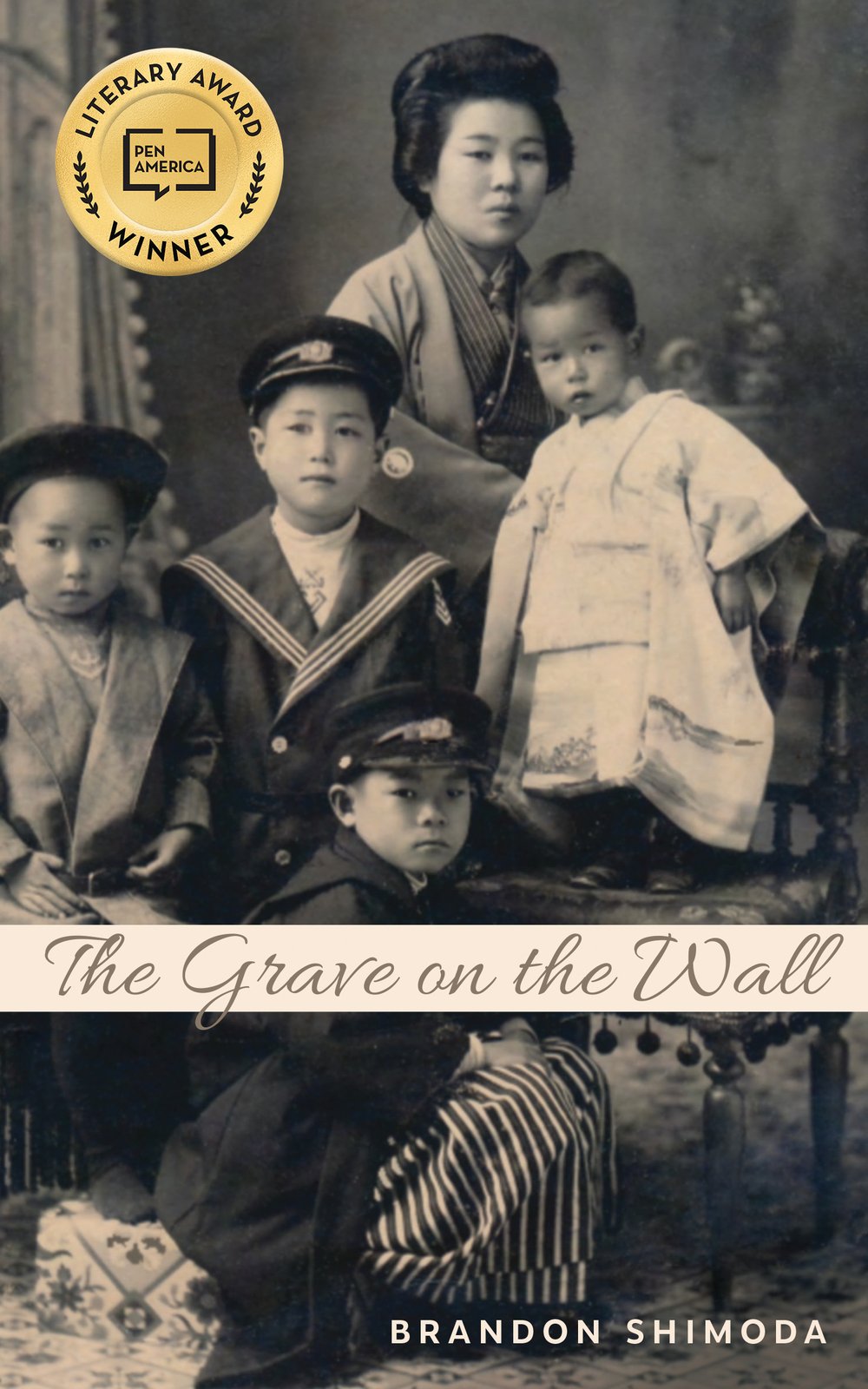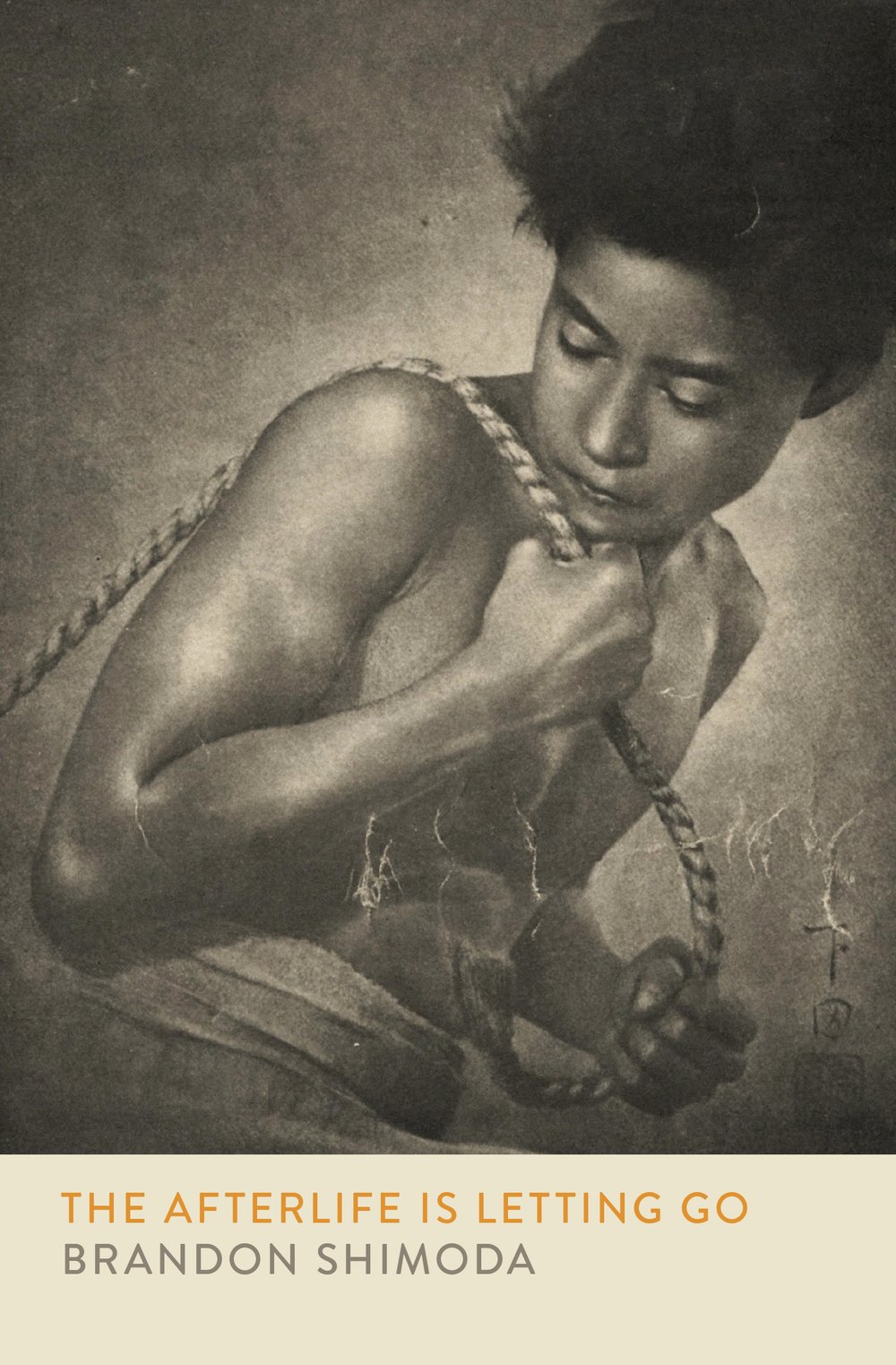The Grave on the Wall

Winner of the 2020 PEN Open Book Award Best of 2019: Nonfiction - Entropy Magazine A memoir and book of mourning, a grandson's attempt to reconcile his own uncontested citizenship with his grandfather's lifelong struggle. Award-winning poet Brandon Shimoda has crafted a lyrical portrait of his paternal grandfather, Midori Shimoda, whose life-child migrant, talented photographer, suspected enemy alien and spy, desert wanderer, American citizen-mirrors the arc of Japanese America in the twentieth century. In a series of pilgrimages, Shimoda records the search to find his grandfather, and unfolds, in the process, a moving elegy on memory and forgetting. Praise for The Grave on the Wall: "Shimoda brings his poetic lyricism to this moving and elegant memoir, the structure of which reflects the fragmentation of memories. ... It is at once wistful and devastating to see Midori's life come full circle ... In between is a life with tragedy, love, and the horrors unleashed by the atomic bomb."-Booklist, starred review "In a weaving meditation, Brandon Shimoda pens an elegant eulogy for his grandfather Midori, yet also for the living, we who survive on the margins of graveyards and rituals of our own making."-Karen Tei Yamashita, author of Letters to Memory "Sometimes a work of art functions as a dream. At other times, a work of art functions as a conscience. In the tradition of Juan Rulfo's Pedro Paramo, Brandon Shimoda's The Grave on the Wall is both. It is also the type of fragmented reckoning only America could instigate."-Myriam Gurba, author of Mean "Within this haunted sepulcher built out of silence, loss, and grief-its walls shadowed by the traumas of racial oppression and violence-a green river lined with peach trees flows beneath a bridge that leads back to the grandson."-Jeffrey Yang, author of Hey, Marfa: Poems "It is part dream, part memory, part forgetting, part identity. It is a remarkable exploration of how citizenship is forged by the brutal US imperial forces-through slave labor, forced detention, indiscriminate bombing, historical amnesia and wall. If someone asked me, Where are you from? I would answer, From The Grave on the Wall."-Don Mee Choi, author of Hardly War "Shimoda intercedes into the absences, gaps and interstices of the present and delves the presence of mystery. This mystery is part of each of us. Shimoda outlines that mystery in silence and silhouette, in objects left behind at site-specific travels to Japan and in the disparate facts of his grandpa's FBI file. Gratitude to Brandon Shimoda for taking on the mystery which only literature accepts as the basic challenge."-Sesshu Foster, author of City of the Future "Shimoda is a mystic writer ... He puts what breaches itself (always) onto the page, so that the act of writing becomes akin to paper-making: an attention to fibers, coagulation, texture and the water-fire mixtures that signal irreversible alteration or change. ... he has written a book that touches the bottom of my own soul."-Bhanu Kapil, author of Ban en Banlieue "The Grave on the Wall is a passage of aching nostalgia and relentless assembly out of which something more important than objective truth is conjured-a ritual frisson, a veracity of spirit. I am grateful to have traveled along."-Trisha Low, The Believer

Brandon Shimoda is the author of six books of poetry, most recently The Desert (Song Cave, 2018) and Evening Oracle (Letter Machine Editions, 2016), which received the William Carlos Williams Award from the Poetry Society of America. His memoir and book of mourning, The Grave on the Wall (City Lights, 2019) received the 2020 PEN Open Book Award. His writings on Japanese-American incarceration have appeared in/on The Asian American Literary Review, Densho, Hyperallergic, The Margins, and The New Inquiry, and he has given talks on the subject at the University of Arizona, Columbia University, Fairhaven College, and the International Center of Photography. He is also the co-editor, with Thom Donovan, of To look at the sea is to become what one is: An Etel Adnan Reader (Nightboat Books, 2014). Born in the San Fernando Valley, California, he lives, for now, in Tucson, AZ.


